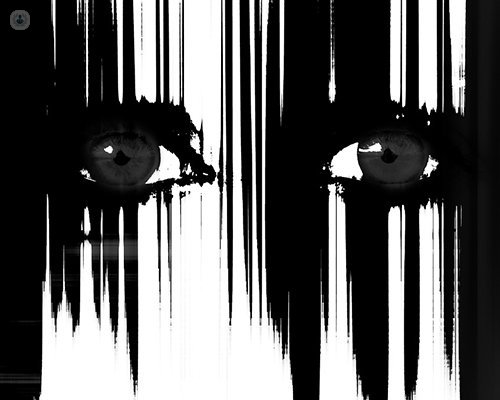Are there likely to be anxious personalities?
Written by:Anxiety is a universal experience. Everyone, at some point, as the body's response to stress of everyday life, we can have a feeling of anxiety. That is not considered a disorder itself, but translates psychobiological reactions that triggers something that concerns us and we create that sense of personal stress. Such tension is accompanied by an impact body with symptoms such as muscle tension, trembling, sweating, difficulty breathing or shortness of breath, headache, palpitations, feeling "knot in the stomach" and diarrhea.
Some people are more prone to such events; it is vulnerable personalities react to the difficulties of life with higher levels of anxiety. In that sense we could be anxious differentiate against a concrete and specific situation that causes fear, insecurity and sense of danger; against being anxious as a permanent personality trait that generates this feeling much more normal way, to condition an anxiety disorder. These people tend to overestimate the danger and its possible consequences, and experience a high propensity to anxiety and permanent concern. This is already considered a clinical category, whose leading cadres are panic disorder or panic disorder, social anxiety or social phobia, generalized anxiety disorder and phobias in its various expressions. Each of these anxiety disorders presents some unique and different ways, but all share the following distinctive features:
- Irrational and excessive fear
- Squeamish tension and feelings
- Difficulty operation and management of daily tasks
This creates a significant impact on quality of life and psychosocial functioning of the person concerned, who is going to feel very anxious symptoms that interfered with .
Causes of anxiety
The causes of anxiety are complex and, as with many disorders in medicine, are multifactorial, including genetic factors, biographic, family history of anxiety disorders, stressful or traumatic biographical events, psychological factors, neurochemicals, the coexistence of other medical problems and substance use.
Psychologically they have been raised three major groups of theories: psychodynamic, cognitive and behavioral.
- Psychodynamic theories defend the main causes stressful or traumatic biographical events.
- Cognitive theory argues that people with anxiety disorders distortion of thought, responsible for an overestimation of danger and its possible consequences occurs.
- According to behavioral theory people with anxiety disorders have learned to associate the fear felt during a stressful or traumatic event with certain cues, such as a place, a sound or a feeling. When these signals keep coming back, fear will re-experience. Once the association between fear and learn signal, the reaction is automatic and immediate and is outside conscious control. The fear is felt before there is time to recognize if danger is near. Such signals can be external or internal.

Biological factors in anxiety
The biological causes of anxiety disorders include brain activity neurochemical and genetic aspects and aspects; in addition, they can also be related to medical problems, other psychiatric disorders and alcohol or substance.
Regarding the neurochemical aspects, three neurotransmitters that are implicated in the development of anxiety: serotonin, norepinephrine , and gamma-aminobutyric acid (GABA).
Serotonin plays an important role in regulating mood paper, aggression, impulse control, sleep, appetite, body temperature and pain perception. The mechanism of action of a group of drugs used to treat anxiety disorders is increasing the level of serotonin neurotransmission improving certain messages.
Meanwhile, norepinephrine is involved in the fight or flight response against situations perceived as dangerous and in the regulation of sleep, mood and blood pressure. Acute stress increases the release of norepinephrine and panic disorders it appears to be poorly regulated system that controls the release of the neurotransmitter.
GABA helps induce relaxation and sleep and avoid overexcitement. Benzodiazepines enhance their activity.
Changes that produces anxiety in brain activity
Modern brain imaging techniques have revealed certain disorders related to anxiety disorders such as abnormalities in cerebral blood flow and metabolism, structural abnormalities (such as atrophy in the frontal lobes, occipital and temporal) and activity in the locus ceruleus (with a high number of norepinephrine neurons). The median raphe nucleus (with a large number of serotonin neurons) appears to be involved in the production of panic attacks.

Genetic factors in anxiety
It has been shown that people are more likely to suffer an anxiety disorder if they have a family member who also has it.
The frequency of familial clustering is particularly high among those suffering from panic attacks almost half of which has at least one relative who also has the disorder.
Alcohol, drugs and illicit substances
Substance use can induce anxiety symptoms, both when the person is intoxicated as when in withdrawal.
The substances most frequently associated with clinical anxiety are stimulants such as caffeine, illicit drugs such as cocaine and drugs such as methylphenidate.
medical conditions
Some diseases such as hyperthyroidism, asthma, pheochromocytoma, porphyria and Parkinson 's can cause anxiety symptoms.
In fact, medical assessment by the Psychiatrist patient is essential before applying the diagnosis of anxiety disorder, since it may be the consequence or manifestation d and an underlying medical condition.



